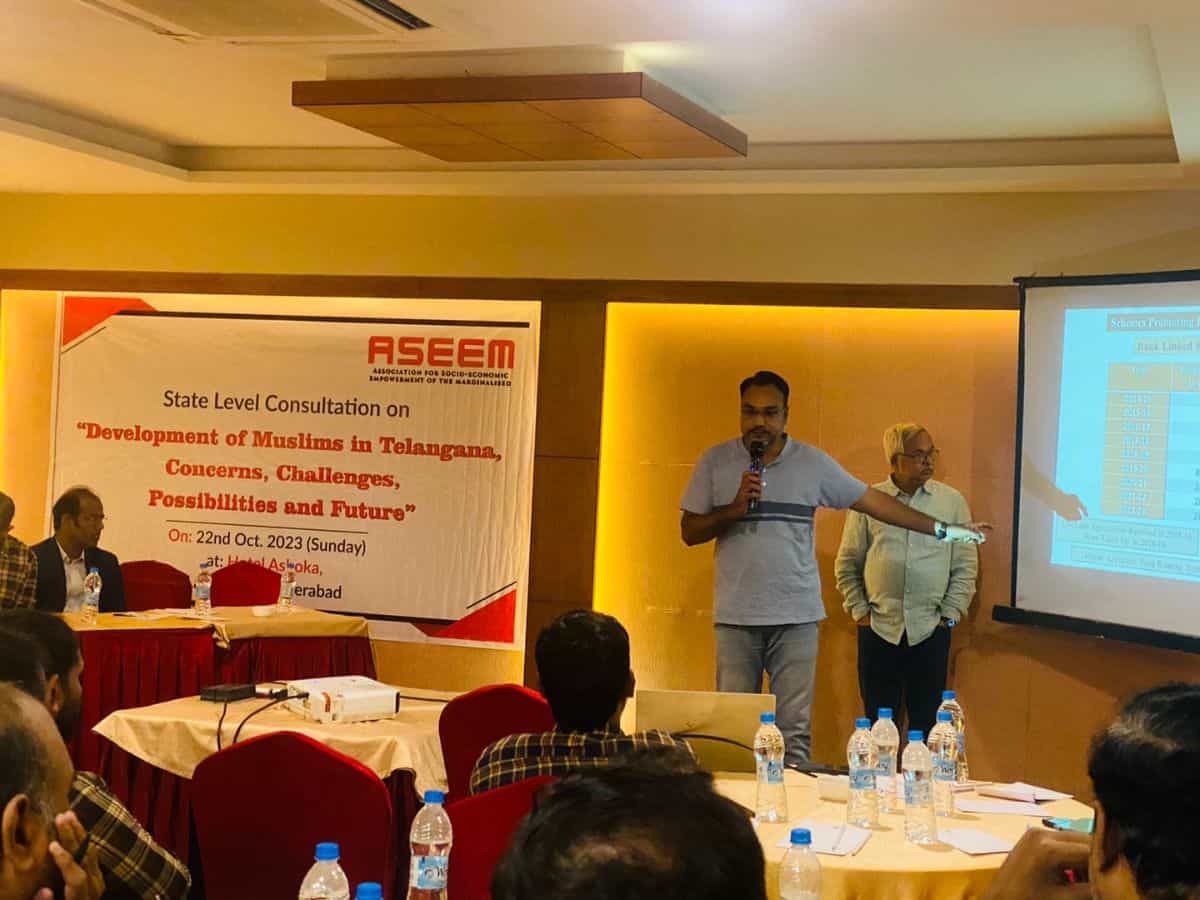
Hyderabad: Most of the Telangana Minority Welfare Department’s budget over the last three financial years has been spent on populist schemes like the Shaadi Mubarak Scheme, Iftar and Christmas feasts, while spending on schemes which directly benefit the poor has been dismally very low.
This was revealed by a study presented at the state-level consultation conducted by the Association for Social and Economic Empowerment of the Marginalised (ASEEM) and Action Aid on Sunday, October 22. The findings paved the way for the demand that the budget allocated for the Minority Welfare Department be granted the status of sub-plan on par with budgets allocated for SC and BC Welfare Departments.
“The setting up of the Sudhir Committee in 2016 to study the socio-economic situation of Muslims in Telangana and subsequent announcement of various measures and programmes gave a new hope to the community. However, not much has changed in the functioning of the State Minority Welfare Department in the last 7-8 years,” a report shared by ASEEM reads.
Spending pattern
ASEEM reported that over the last three financial years, the budget utilisation rate of the Minority Welfare Department in Telangana appears satisfactory on the surface — at 56.6% in 2020-21, 80.43% in 2021–22, and 72.74% in 2022-23. However, a deeper examination points towards more focus on populist schemes like the Shaadi Mubarak Scheme and the Iftar and Christmas feast.
For instance, the budget for the Pre-Matric Scholarship was reduced from 9.53% in 2018-19 to 0% 2022-23. Moreover, budget allocations to schemes like bank-linked subsidies and training & employment also witnessed a steep decline.
On the other hand, the allocation for study circle coaching saw an increase from 25% in 2018-19 to 52% in 2022-23.
With Muslims constituting 14.57% and SCs making up 17.48% of the state’s population, there is a stark difference in the budget allocation for the welfare of these communities. “The SC Welfare Department receives 9.04% of the total state budget, while the Minority Welfare Department gets a meagre 0.83%,” the study has pointed out.
Recommendations
After deliberations by the panellists, including Abid Rasool Khan (former chairperson of state minorities commission), Ayesha Rubina, Prof. KM Ziyauddin (MANUU), MA Khuddus and others, several recommendations to be submitted to the government were put forward.
They demanded that the budget allocated for the Minority Welfare Department be granted the status of sub-plan on par with budgets allocated for SC and BC Welfare Departments; state level and district level monitoring and coordination committees be set up with the involvement of civil society members; and engagement with community at the grassroots level to conduct need assessment at the time budget formulation.
They also sought that the government provide adequate infrastructure and staff for Minority Welfare Department at the state, district and block levels.
The consultation members also discussed forming a pressure group comprising senior civil society members, academicians, and religious leaders to ensure a regular social audit of all agencies under the Minority Welfare Department.



